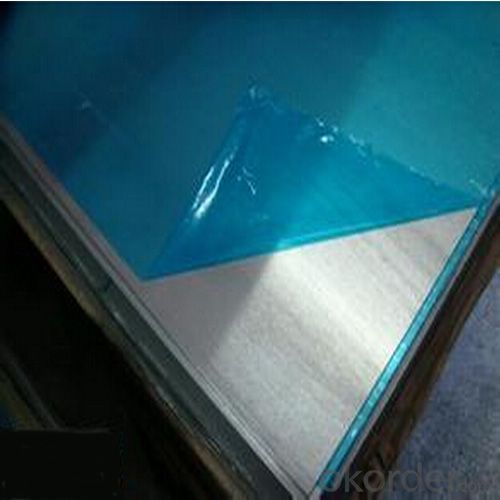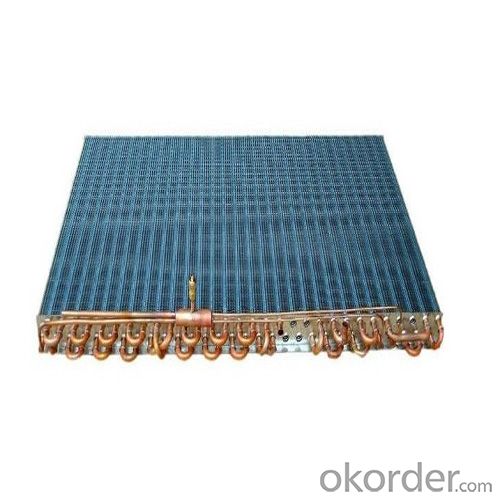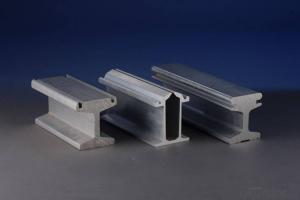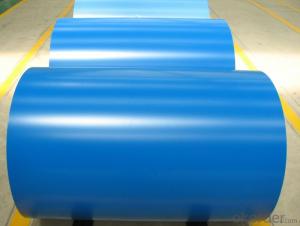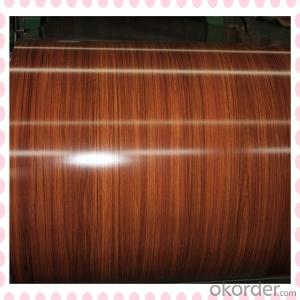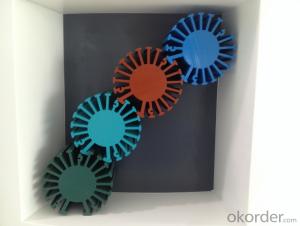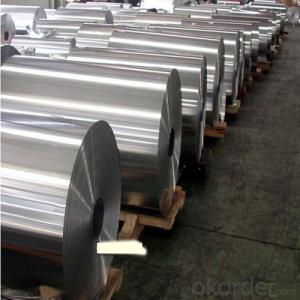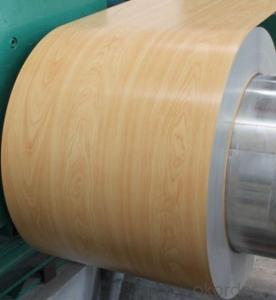Aluminum Coil Pipe Aluminum Refrigerator Condenser Coils for Condensing Unit
- Loading Port:
- Shanghai
- Payment Terms:
- TT OR LC
- Min Order Qty:
- 5 m.t.
- Supply Capability:
- 10000 m.t./month
OKorder Service Pledge
OKorder Financial Service
You Might Also Like
Specification
1.Structure of Aluminum Refrigerator Condenser Coils for Condensing Unit Description:
Heat transfer occurs when there is a difference in temperature between two mediums. They are widely used in construction and decoration, hardware and electric appliances manufacture, automobile manufacture and other industrial and civil purposes, such as electronic capacitor, rice cooker, refrigerator, computer casting, lamp shade, air-conditioner, cosmetics cover and box, air-conditioner radiator, inner container of disinfecting cabinet, ceiling board, automobile motherboard, cover board and top board, etc.
2.Main Features of Aluminum Refrigerator Condenser Coils for Condensing Unit :
1). Brazed Aluminum construction
2). Combination welded cores-Air&Oil cores
3). Brazed aluminum core/bar and plate
4). Excellent for field conversions
5). Compact design
6). Light weight
3. Aluminum Refrigerator Condenser Coils for Condensing Unit Images:
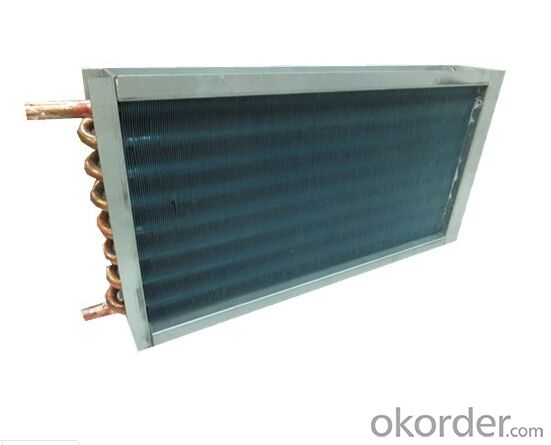
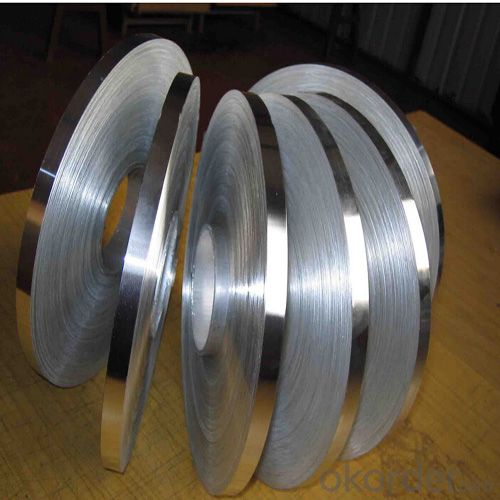
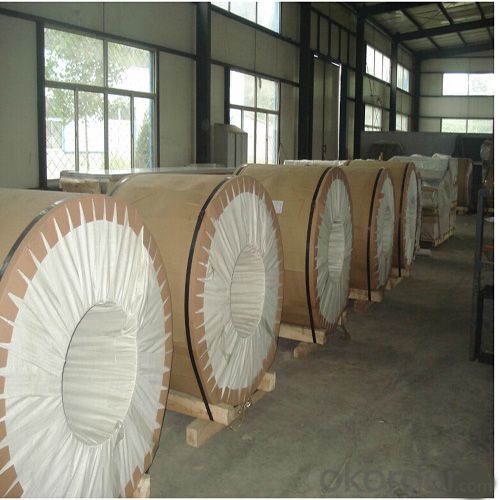
4. Aluminum Refrigerator Condenser Coils for Condensing Unit Specification:
| Alloy No. | Thickness (mm) | Width (mm) | Length (mm) | Temper | |
| A1050,A1060, A1070,A1100 | 0.2-100 | 20-2200 | 20-8000 | O,H12,H22,H14,H16,H18, H24,H26,etc | |
| 3A21,A3003,A3105,A3004 | 0.2-100 | 20-2200 | 20-8000 | O,H14,H18,H24,etc | |
| A5052 ,A5005,A5083,A5754 | 0.2-100 | 20-2200 | 20-8000 | O,H18,H24,H32,H34,H111,H112 ,etc | |
| A6061,A6082,A6063 | 0.2-200 | 20-2200 | 20-8000 | T4,T6, T651,etc | |
| A8011 | 0.2-100 | 20-2200 | 20-8000 | O,H12,H22,H14,H16,H18,H24,H26, etc | |
5.FAQ
Q1.How long have you been in this product?
A1:More than 10 years.
Q2. What's the minium quantity(MOQ)?
A2. 5 Metric tons
Q3. How long is shipping time?
A3. 7 (ready-made products)-25 days(OEM)
Q4. How do you guarantee the quality?
A4. 1. Cooperating and Exchaning experience with sevral quoted aluminum companies
2. Japanese and Swiss production line and skilled works (regular training and testing)
3. more than 10 years production experience.
Q5. Do you have after sale service?
A5. Yes. Any quality problem occurs within one year, pls take photoes,we will be responsible.
- Q: How do aluminum coils contribute to energy-efficient windows and doors?
- The significance of aluminum coils in enhancing the energy efficiency of windows and doors cannot be overstated. To begin with, aluminum, being a highly conductive material, possesses the ability to efficiently transfer heat and cold. This characteristic enables aluminum coils to act as effective thermal barriers, preventing the exchange of heat from the exterior to the interior and vice versa. By reducing heat transfer, aluminum coils assist in minimizing the energy required for cooling or heating a structure, resulting in decreased energy consumption and lower utility bills. In addition, the lightweight and durable nature of aluminum coils makes them a preferred choice in the construction of window and door frames. Their lightweight attribute facilitates easier installation and operation of windows and doors, while their durability ensures long-lasting performance. Furthermore, the usage of aluminum coils permits the creation of sleek and narrow frame designs, optimizing the amount of glass area and allowing ample natural light to enter the building. This reduces the reliance on artificial lighting during daylight hours, further contributing to energy savings. Furthermore, aluminum is a highly recyclable material, and the utilization of aluminum coils promotes sustainability. By incorporating recycled aluminum in the manufacturing of these coils, energy-efficient windows and doors can be produced with a significantly lower carbon footprint. This aids in minimizing the environmental impact of the construction industry and contributes to a more sustainable future. In conclusion, the thermal barrier properties, lightweight and durable nature, as well as the recyclability of aluminum coils, make them indispensable in the creation of energy-efficient windows and doors. By reducing heat transfer, facilitating efficient installation, and decreasing the reliance on artificial lighting, aluminum coils play a vital role in the development of sustainable and energy-saving building solutions.
- Q: Can aluminum coils be used for electrical conductors?
- Yes, aluminum coils can be used for electrical conductors. Aluminum is a good conductor of electricity and is commonly used in various electrical applications due to its high conductivity, lightweight nature, and cost-effectiveness.
- Q: This question seeks to understand the various types of aluminum coils that are commonly found in the market.
- <p>Aluminum coils available on the market today can be categorized based on their properties and applications. These include: 1. Plain Aluminum Coils: Used for general purposes like packaging and construction. 2. Embossed Aluminum Coils: Feature a textured surface, used in decorative applications. 3. Alloy Aluminum Coils: Made from a mixture of aluminum and other metals for enhanced strength or corrosion resistance. 4. Color Coated Aluminum Coils: Coated with paint or plastic for aesthetic or protective purposes. 5. Heat Treated Aluminum Coils: Processed to improve their mechanical properties. 6. Mirror Finish Aluminum Coils: Have a highly reflective, polished surface. 7. Pre-painted Aluminum Coils: Coated with a layer of paint before being used in construction or other applications. Each type serves specific industries and applications, with variations in thickness, width, and alloy composition.</p>
- Q: How are aluminum coils tested for strength and durability?
- Aluminum coils are tested for strength and durability through a rigorous process that involves several methods. One common method is tensile testing, which measures the maximum amount of stress a coil can withstand before it breaks or deforms. This test helps determine the overall strength and elasticity of the aluminum. Another important test is the hardness test, which measures the resistance of the aluminum coil to indentation or scratching. This test helps determine the durability and wear resistance of the material. Furthermore, aluminum coils are often subjected to fatigue testing, where the material is repeatedly subjected to cyclic loading and unloading. This test helps simulate real-life conditions and assesses the coil's ability to withstand repeated stress without failure. Additionally, corrosion resistance is a critical factor in determining the durability of aluminum coils. Therefore, various corrosion tests are conducted, such as salt spray testing, to assess the coil's resistance to environmental factors that may lead to corrosion or degradation over time. In some cases, non-destructive testing methods like ultrasonic testing or eddy current testing are employed to detect any internal defects or inconsistencies within the coil that may affect its strength and durability. Overall, a combination of mechanical, physical, and chemical tests are conducted on aluminum coils to ensure they meet the required strength and durability standards. These tests help manufacturers and consumers have confidence in the quality and reliability of the aluminum coils for various applications.
- Q: What does 1060 of the 1060 Aluminum rolls stand for?
- Can aluminium rolls be classified into nine categories? One series is the 1060 series, which represents the 1050106010701000 series aluminum plate, also known as pure aluminum. In all the series, the 1000 series belongs to a series with the largest amount of aluminum.
- Q: How are aluminum coils transported and packaged?
- Aluminum coils are typically transported and packaged using wooden crates or pallets. The coils are securely strapped or bundled together to prevent movement during transit. They are then loaded onto trucks or shipping containers for transportation, ensuring they are well-protected to avoid any damage or deformation.
- Q: I did a activity series lab and on my data table, it shows that lead reacted more than aluminum did, but aluminum is more active than lead. So, why does it show that lead is more active when it really isn't? Is it human error?
- Aluminum is more active than lead. You should double check your activity data table. If you confirm that the table says that lead is more active than aluminum, the table is in error.
- Q: 1) Do you recycle aluminum (soda cans, etc.)?2) Why do or don't you recycle aluminum?3) Does it make a difference to the economy whether we recycle or not?4) Does it make a difference to the environment whether we recycle or not?5) What do you think would help people to recycle more? Such as a reward, information, resources, etc. Don't feel the need to limit responses. Thank you.
- 1) Yes, I recycle aluminum. 2) I recycle to help from having to have so much in garbage dumps and to get a little extra cash. 3) I feel that recycling helps the economy by reusing aluminum and not having to spend so much time money manufaturing new aluminum and creating some jobs in the recycling field. 4) Recycling aluminum helps the environment by having less aluminum in land fills or alongside the roads. 5) I think more people would recycle aluminum if there was a reward or if you could get a higher price for the aluminum when recycling. Too many people feel the amount of money they can get for reycling aluminum, is not worth their time or the trouble.
- Q: What are the different coil handling equipment options for aluminum coils?
- There are several coil handling equipment options available for handling aluminum coils, depending on the specific requirements and preferences of the user. Some of the common options include: 1. Coil Lifters: Coil lifters are specially designed lifting devices that can safely and efficiently handle aluminum coils. They typically consist of a set of clamps or hooks that securely hold the coil and are attached to a lifting mechanism. Coil lifters can be manually operated or powered by electricity or hydraulics, providing ease of use and increased productivity. 2. Coil Tippers: Coil tippers are used to rotate or tilt aluminum coils to facilitate loading, unloading, or positioning. They are typically equipped with adjustable arms or clamps that hold the coil in place during rotation. Coil tippers can be controlled manually or using hydraulic or electric systems, allowing for precise and controlled movements. 3. Coil Cars: Coil cars are specially designed transport vehicles that are used to move aluminum coils within a manufacturing facility or between different areas. They are equipped with a platform or carriage on which the coil is placed, and can feature various mechanisms for loading, unloading, and positioning the coil. Coil cars can be manually operated or powered by electricity or hydraulics for increased efficiency. 4. Coil Turnstiles: Coil turnstiles are used to safely and efficiently store and retrieve aluminum coils in a vertical position. They typically consist of a rotating drum or spool that can hold multiple coils, allowing for easy access and retrieval. Coil turnstiles can be manually operated or powered by electricity or hydraulics, providing quick and convenient storage solutions. 5. Coil Cradles: Coil cradles are used to support and protect aluminum coils during storage or transportation. They typically consist of a sturdy frame or structure with adjustable arms or supports that securely hold the coil in place. Coil cradles can be customized to accommodate different coil sizes and weights, ensuring safe and stable handling. Overall, these coil handling equipment options provide various solutions for efficiently and safely handling aluminum coils, helping to streamline manufacturing processes and improve productivity. The choice of equipment would depend on factors such as the size and weight of the coils, the specific requirements of the operation, and the available budget.
- Q: Explain the distinctions between aluminum coil and aluminum foil, highlighting their physical properties and applications.
- <p>Aluminum coil and aluminum foil are both made from aluminum but differ in thickness and applications. Aluminum coil is a flexible and continuous roll of aluminum, typically thicker and stronger than foil, used in manufacturing processes such as construction, packaging, and automotive parts. It can be easily cut and shaped. Aluminum foil, on the other hand, is a very thin and lightweight material, often used for food packaging, cooking, and insulation due to its excellent barrier properties against air, moisture, and light. It's less durable than coil and is not typically used in structural applications.</p>
Send your message to us
Aluminum Coil Pipe Aluminum Refrigerator Condenser Coils for Condensing Unit
- Loading Port:
- Shanghai
- Payment Terms:
- TT OR LC
- Min Order Qty:
- 5 m.t.
- Supply Capability:
- 10000 m.t./month
OKorder Service Pledge
OKorder Financial Service
Similar products
Hot products
Hot Searches
Related keywords




